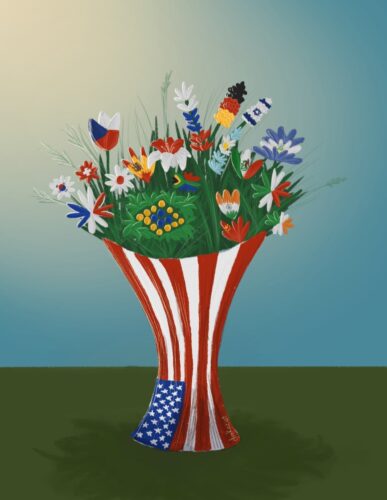Programming Adapts for Students During Remote Status
By Sadie Peckens
speckens@mail.ccsf.edu
With the shift to remote learning, City College’s Multicultural Retention Services Department (MRSD) continues to support underrepresented students.
MRSD is made up of five programs, UMOJA/African American Scholastic Programs (AASP), Asian Pacific American Student Success Program (APASS), Filipino American Student Success Program (TULAY), Latino Services Network (LSN) and Oceania Student Success Program (VASA). According to the MRSD web-page, services include counseling, tutoring and additional activities by program.
Losaline Mafuahingano-Muli, VASA Program Counselor and Coordinator, recommends that City College students, “Be a part of a program at City, whether it’s VASA or any other program. It’s a gift for students to take advantage of.”
This gift is still available to students during remote status. Counselors, classified staff, and a student ambassador shared how services and outreach have adapted to meet student needs while operating remotely, and encouraged students to reach out for help in this difficult time. Counselors have recommended psychiatric services and advised students to connect with instructors and peers.

Being remote has meant more work in a variety of ways. For instance, in some cases, counselor caseloads have gone up. With on-line bookings, students can select any counselor, and when they happen to select a counselor from an MRSD program, some students choose to join a program. On the other hand, in some areas, student activity in programming has gone down. The numbers vary by program and service. Numbers aside, outreach and services going all-remote has required additional work, time, and ingenuity from faculty and staff.
Some services have been adapted to meet remote needs. For example, APASS classified staff Nise Fono explained, the APASS program used to operate a lending library of physical books. With the campus closure, the library shifted to offer vouchers for ebooks. In addition, some scholarships are now being offered virtually. APASS counselors can connect students with scholarship opportunities unique to the APASS program.
Individual outreach has given counselors a sense of why some students did not re-enroll during this remote semester. TULAY coordinator and counselor Bo Aleonar heard from students who are waiting until the fall 2021 semester to return. Reasons vary on an individual basis. Some students, Aleonar explained, have a learning style that does not match remote instruction. Other factors include challenges with access to the internet or other resources. Mafuahingano-Muli cited similar student circumstances, adding that some students have lost their jobs and/or are dealing with family situations, further impeding the effort to meet educational goals.
Aleonar said making connections with students without the physical space that students used to congregate in has been a challenge. The physical space, Aleonar emphasized, allowed for impromptu conversations, outreach, and tutoring. Some opportunities are lost without the physical space, while others are different, because they now require pre-booking, which can be a hindrance.
Strategies to address these challenges included weekly emails from Mafuahingano-Muli to every VASA student. TULAY began a new virtual link tree. Through the virtual link tree, students can connect with student ambassadors through Zoom. TULAY student ambassador MJ Villanueva II explained that the links can be found through Instagram.
In addition, Aleonar said that TULAY is on a cross-colleges committee. The committee delivers events, which students from the network of participating schools can access. This provides students the opportunity to access resources from several colleges. “So if we’re talking about connections and feeling a part of academia still, we’re trying to be as creative as possible and make things as accessible as possible,” Aleonar said.
Both Villanueva and Aleonar discussed a men’s support group, called Pinoyz II Men, which has continued to meet while remote. The support group is open to all men, Aleonar said, including men who are transitioning or questioning, and anyone who deals with the social construct of identifying as a man. The support group meets the first Friday of every month.
“It’s pretty awesome to see how much we can adapt, transition and make something work through troubling times,” Villanueva said. Overall, services have adapted and continued, despite operating remotely.
Aleonar emphasized that it is not only a story of challenges but also a story of strength. “There is a lot of resilience as well. I meet a lot of returning students, despite the pandemic, that want to come back…I think it’s just a matter of the faculty really being as creative as possible to do some outreach, it’s ironic, to do some outreach behind your screen, so the students can really know that we’re still here and we still care about them,” Aleonar said.
Looking ahead, faculty and staff are preparing for remote outreach to high school campuses this spring. Additional events, scholarships, and opportunities can be found by following MRSD programs on Facebook and Instagram, and through the Virtual Campus link, https://www.ccsf.edu/student-services/student-counseling/mrsd.
